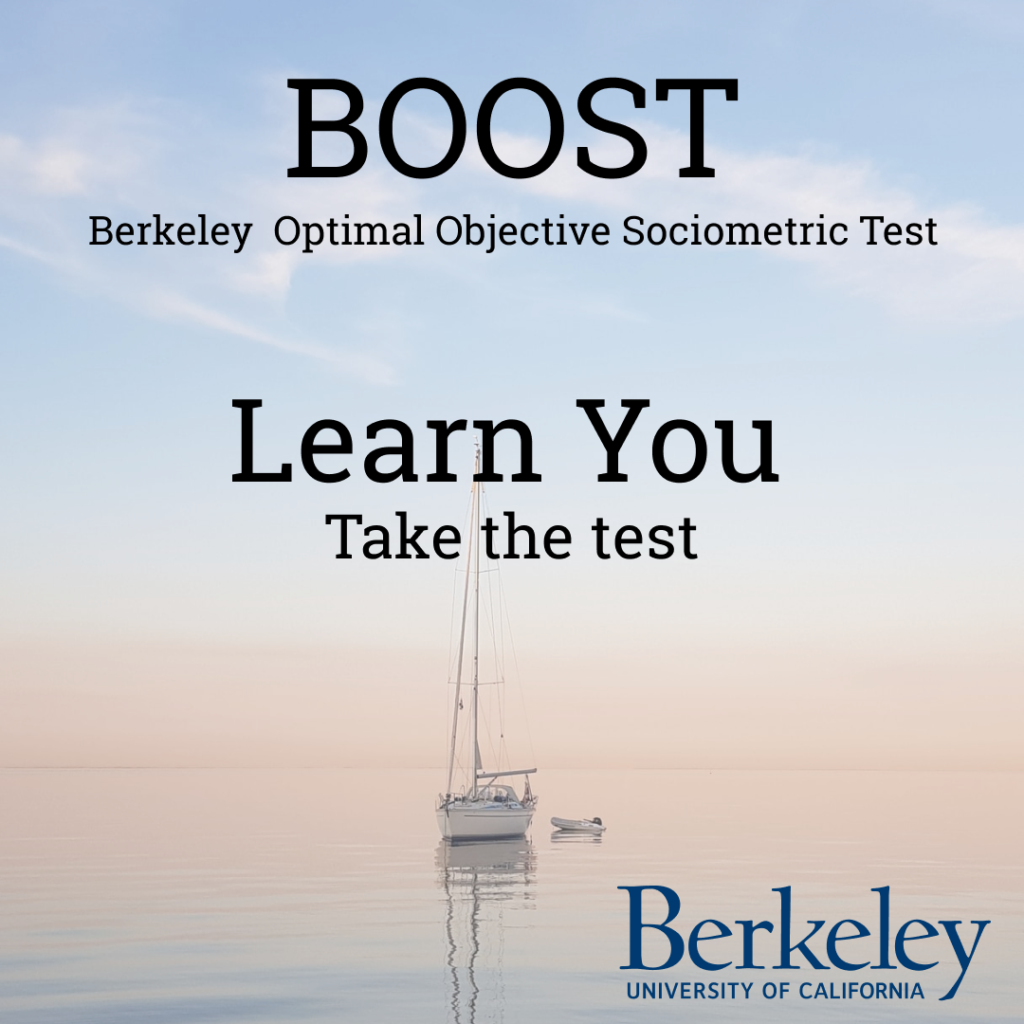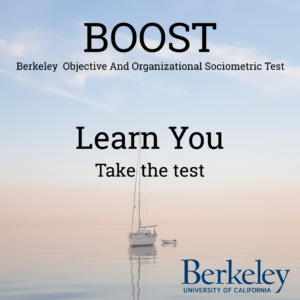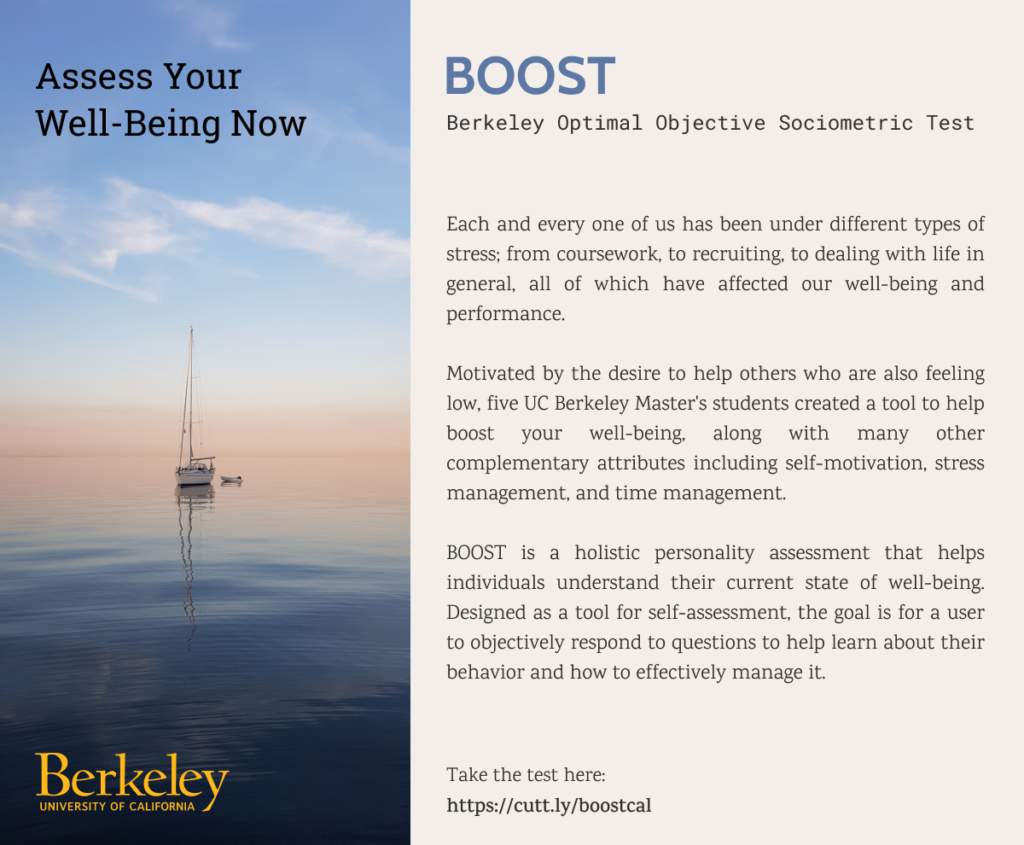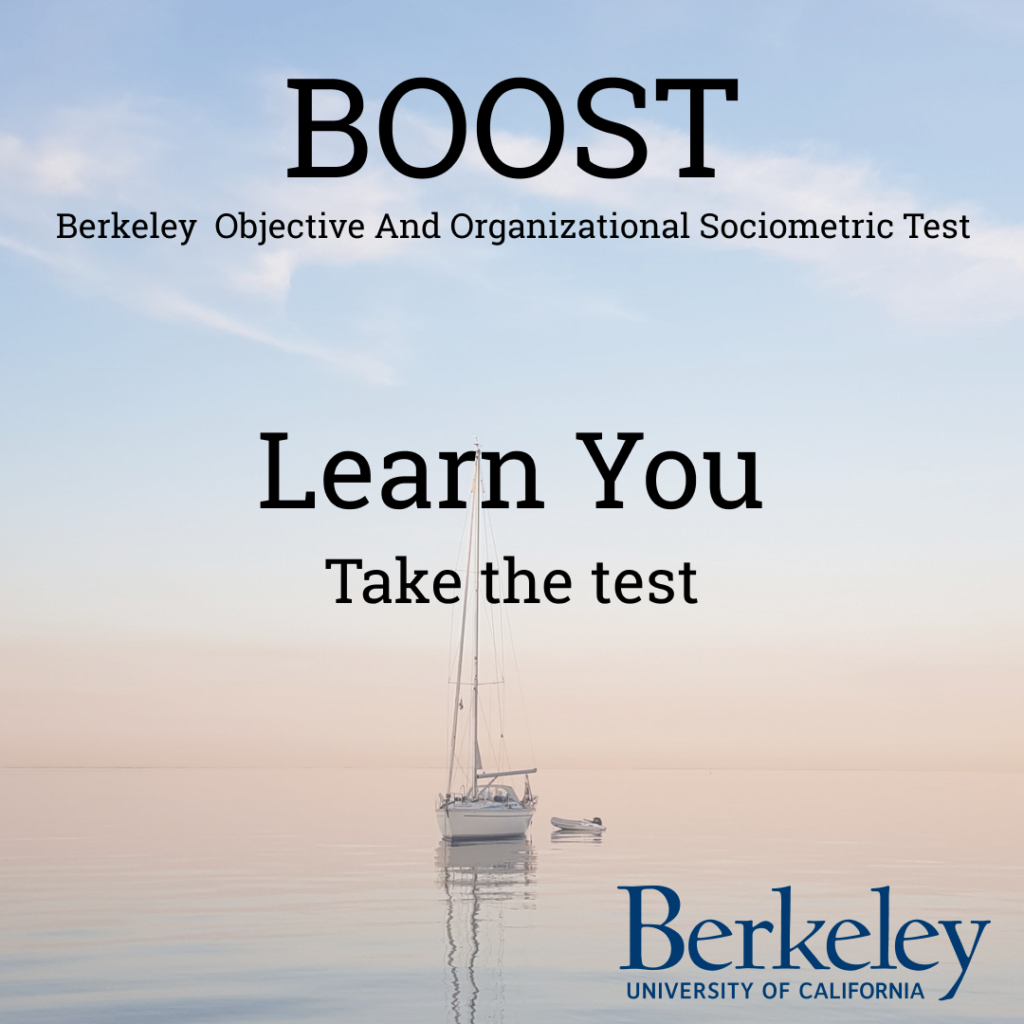Can a test be used to assess one’s well-being? Five master of engineering students have used modern machine learning tools and psychological practices to create a new tool called BOOST to assess one’s well-being, and make personalized suggestions for improving it.
The journey began when the students met in the program and found that they shared a common vision: to create a product, service, or tool that will benefit people in a social, mental, or emotional way. Serendipitously, a guest lecture from Elias Castro-Hernandez inspired the group into action.
Each member of the group, their friends, and their family have been under different types of stress from coursework, recruitment, or dealing with life in general; all of which has affected their well-being and performance.
Motivated by the desire to help others who are also feeling low, the team collaborated with UC Berkeley’s Sutardja Center for Entrepreneurship and Technology, clinical psychologists, and cognitive scientists to create a tool to help boost one’s well-being, along with many other complementary attributes including self-motivation, stress management, and time management. In addition, the assessment contains a recommendation
engine that will give the user different types of feedback and resources to help them improve in all sub-attributes.
From the beginning of the program to the current state of time, what has kept the team together and has allowed them to overcome many many challenges throughout this journey is their trust. They believed in each other’s technical and personal skills and have come together to achieve one vision: to motivate others to acknowledge, understand, and appreciate their well-being. What differentiates this tool from any other well-being metric is its measurement of other key attributes and its uniquely thorough recommendation engine with rich content.
The team has witnessed the COVID-19 pandemic cause a huge amount of mental, physical, and emotional stress on the majority of the population. When an individual’s well-being is more important than ever, they saw this as an opportunity to help others assess their well-being during and after this intense moment in time. Assess your well-being now.

Can a test be used to assess one’s well-being? Five master of engineering students have used modern machine learning tools and psychological practices to create a new tool called BOOST to assess one’s well-being, and make personalized suggestions for improving it.
The journey began when the students met in the program and found that they shared a common vision: to create a product, service, or tool that will benefit people in a social, mental, or emotional way. Serendipitously, a guest lecture from Elias Castro-Hernandez inspired the group into action.
Each member of the group, their friends, and their family have been under different types of stress from coursework, recruitment, or dealing with life in general; all of which has affected their well-being and performance.
Motivated by the desire to help others who are also feeling low, the team collaborated with UC Berkeley’s Sutardja Center for Entrepreneurship and Technology, clinical psychologists, and cognitive scientists to create a tool to help boost one’s well-being, along with many other complementary attributes including self-motivation, stress management, and time management. In addition, the assessment contains a recommendation
engine that will give the user different types of feedback and resources to help them improve in all sub-attributes.
From the beginning of the program to the current state of time, what has kept the team together and has allowed them to overcome many many challenges throughout this journey is their trust. They believed in each other’s technical and personal skills and have come together to achieve one vision: to motivate others to acknowledge, understand, and appreciate their well-being. What differentiates this tool from any other well-being metric is its measurement of other key attributes and its uniquely thorough recommendation engine with rich content.
The team has witnessed the COVID-19 pandemic cause a huge amount of mental, physical, and emotional stress on the majority of the population. When an individual’s well-being is more important than ever, they saw this as an opportunity to help others assess their well-being during and after this intense moment in time. Assess your well-being now.




